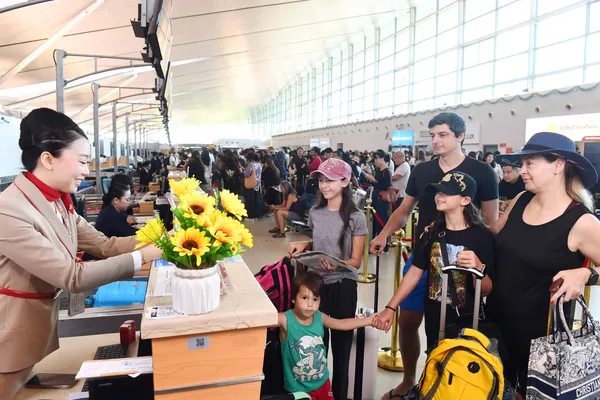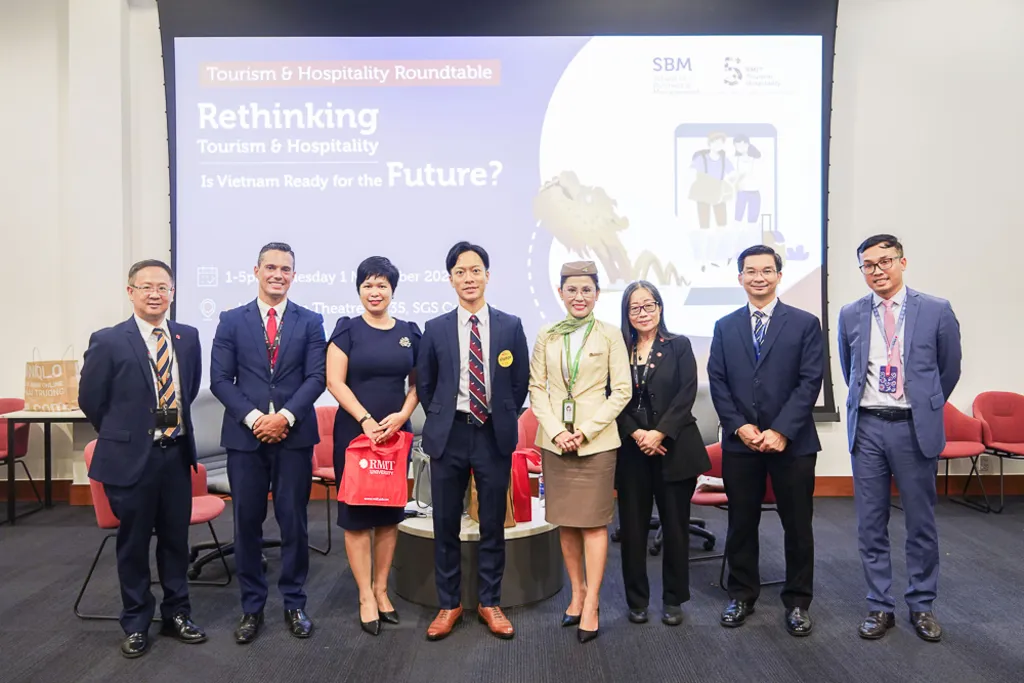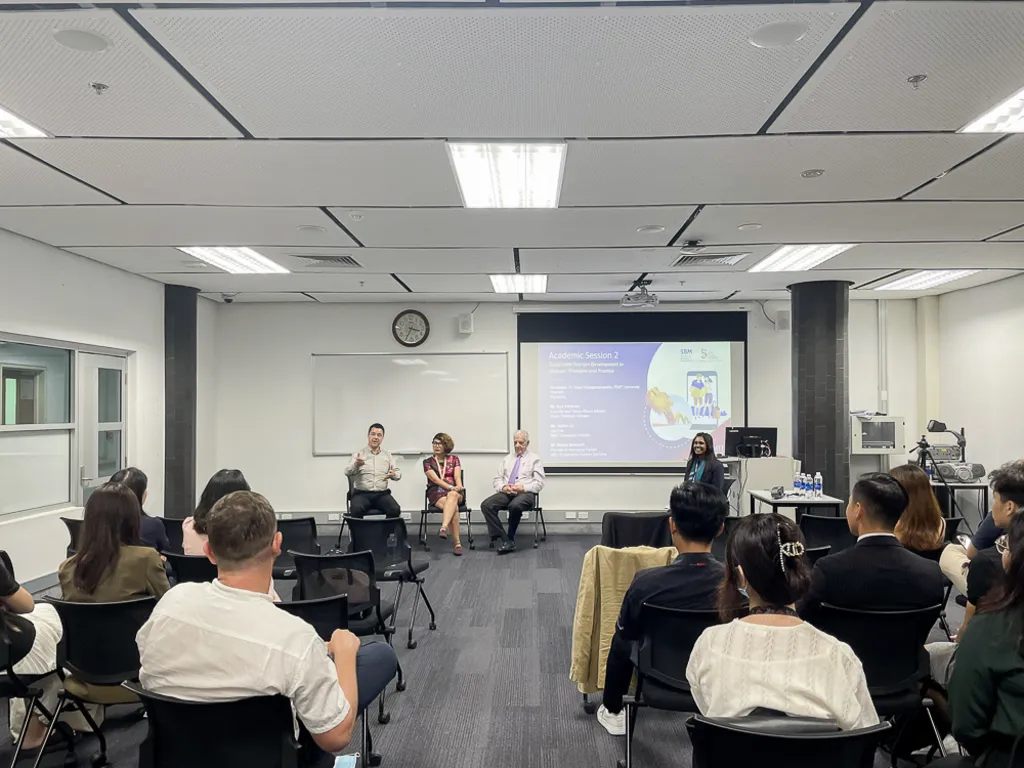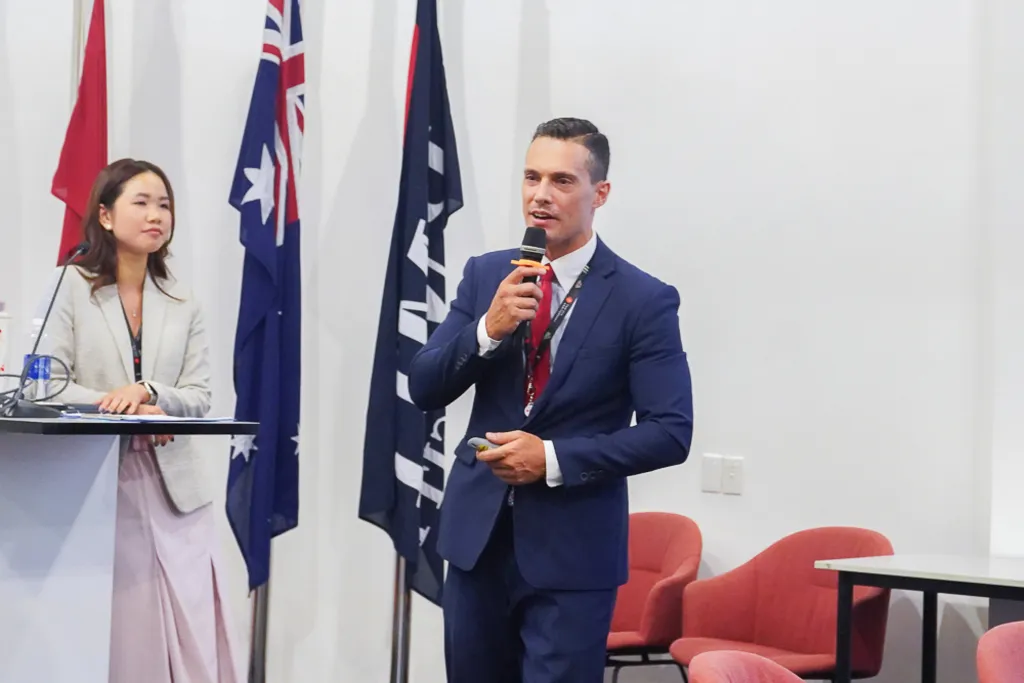 Brandinfo
Brandinfo

Factors that hinder development of sustainable tourism
According to the World Tourism Organization (UNWTO), sustainable tourism is the development of tourism activities to meet the current needs of tourists and indigenous people while paying attention to the conservation and improvement of resources for the development of tourism activities in the future.
However, globally, tourism has been among the hardest hit sectors by the COVID-19 pandemic. Recently, RMIT University Vietnam convened the Tourism and Hospitality Roundtable 2022 to make the sector more resilient and ensure it is on track toward the 2030 global agenda for sustainable development.
 |
| The Tourism and Hospitality Roundtable 2022 discussed the potential of Vietnamese tourism in the post-pandemic era. |
{ "id": "la4qSlCZhU", "type": "myToolImages", "data": { "data": "" } }
Regarding the shortcomings, Mr Jason Choi, Country Manager Vietnam and Cambodia of Cathay Pacific Airways, said that Viet Nam's airports were jammed by crowds with many aircraft and routes suffering delays despite airlines trying to mitigate the situation.
“The aviation industry in Viet Nam has huge room for growth, but more infrastructure investment is needed for airlines to expand at a rate that could meet the booming demand. Moreover, Viet Nam is a country of many heritages and tourist attractions, however, most of them are not widely promoted outside of Viet Nam. I hope the government would invest more to reach their full potential,” said Mr Choi.
Ms Nguyen Thi My Trang, Director of Service Quality Control, Head of Customer Experience, Bamboo Airways, shared that Viet Nam’s tourism and hospitality industry is facing a shortage of high-quality labour.
“There are not even enough employees at the airports for check-in service. Airline labour problems also occur with pilots, flight attendants, ground services, baggage services, and many others. After social distancing, many airline staff who had bad impacts on their career have shifted to other industries. We can’t get experienced employees back to work right away, it takes time to train new employees to replace them. A severe shortage of human resources affects the quality of airline service in some ways,” said Ms Trang.
In addition, experts attending the roundtable agreed that visa restrictions are a factor hindering the growth of tourism. Currently, tourists only have 15 days to stay in Viet Nam on their visa while it can take substantial time and effort to travel here for a range of global travellers.
 |
| The panel discussions were attended by many experts in the tourism industry. |
{ "id": "HoNPSWHLSo", "type": "myToolImages", "data": { "data": "" } }
RMIT’s efforts in training high-quality human resources
The tourism industry in Viet Nam requires sustainability because it has a great impact on the economy, politics, and policies. In 2019, Viet Nam was one of the ten countries with the fastest tourism growth in the world, accounting for nearly 10 per cent of GDP. According to the national tourism development strategy, the direct contribution will increase to 12-14 per cent by 2025 and reach 15-17 per cent by 2030.
2022 is also a milestone marking the 5-year establishment of the Tourism and Hospitality Management program at RMIT Vietnam, the organiser of the Tourism and Hospitality roundtable this year.
 |
| Dr Nuno F. Ribeiro, RMIT Vietnam, spoke at the event. |
{ "id": "SUBvMCcDkK", "type": "myToolImages", "data": { "data": "" } }
Dr Nuno F. Ribeiro, Senior Lecturer and Research Cluster Lead, RMIT University Vietnam, said: “One of our and our students’ key life purposes is to contribute to the sustainable development of tourism in Viet Nam. We must focus not only on growth in terms of a number of tourists and revenue, but sustainable growth – we want tourism to have a positive impact in the country, and our students are being educated to contribute to that goal.”
To be more specific, “our work-integrated learning approach with strong industry links would enable students to be ready to join the labour market right after graduation. We do this in a multi-faceted manner by bringing senior business leaders into our classrooms, taking our students to visit and engage with enterprises at their places of operation and with intense embedded internships where our students are immersed in mentored on-the-job learning. This approach equips students with practical knowledge, contributing to improving the quality of human resources in the tourism industry in Viet Nam”, said Dr Jackie Ong, Senior Program Manager, Tourism & Hospitality Management, RMIT University Vietnam.
The Tourism and Hospitality Management program at RMIT equips students with theoretical knowledge and practical application, as well as a solid foundation in business management, finance, marketing, soft skills and English proficiency at the highest level. With international standards and Vietnamese culture immersion, it paves the way for students to pursue managerial roles in local and international organisations.